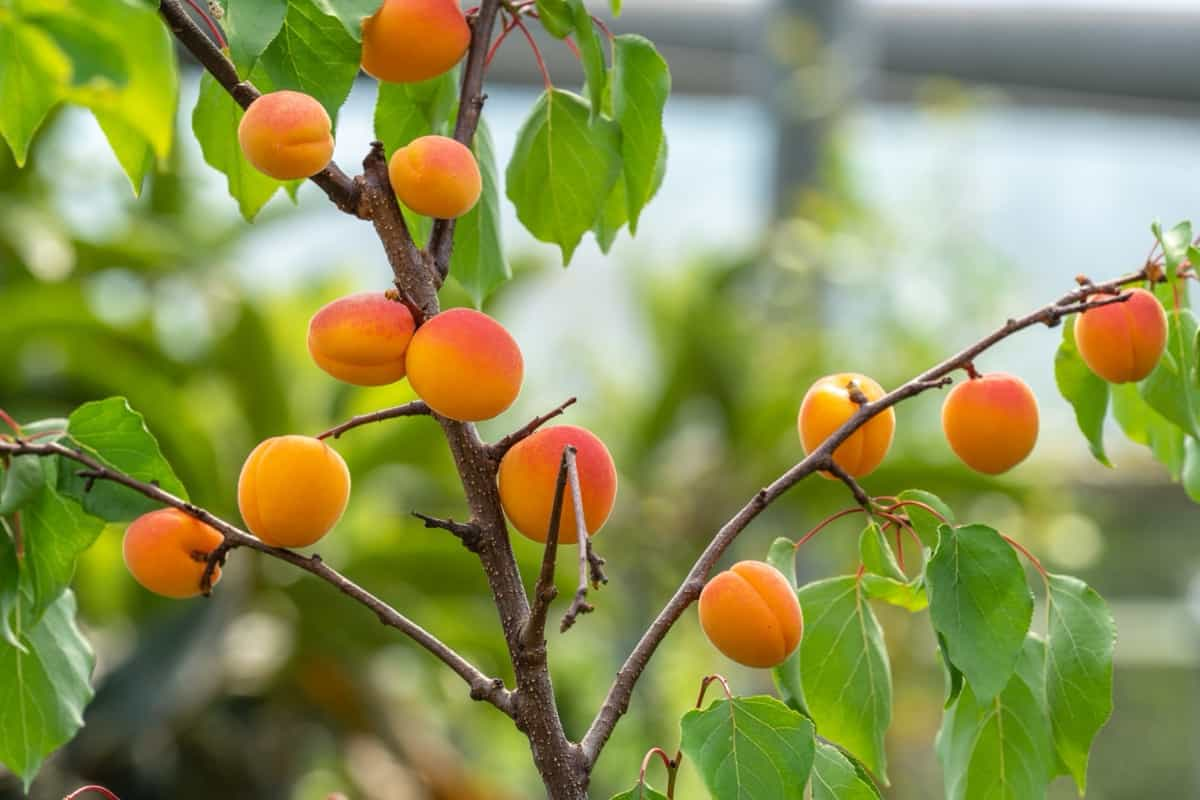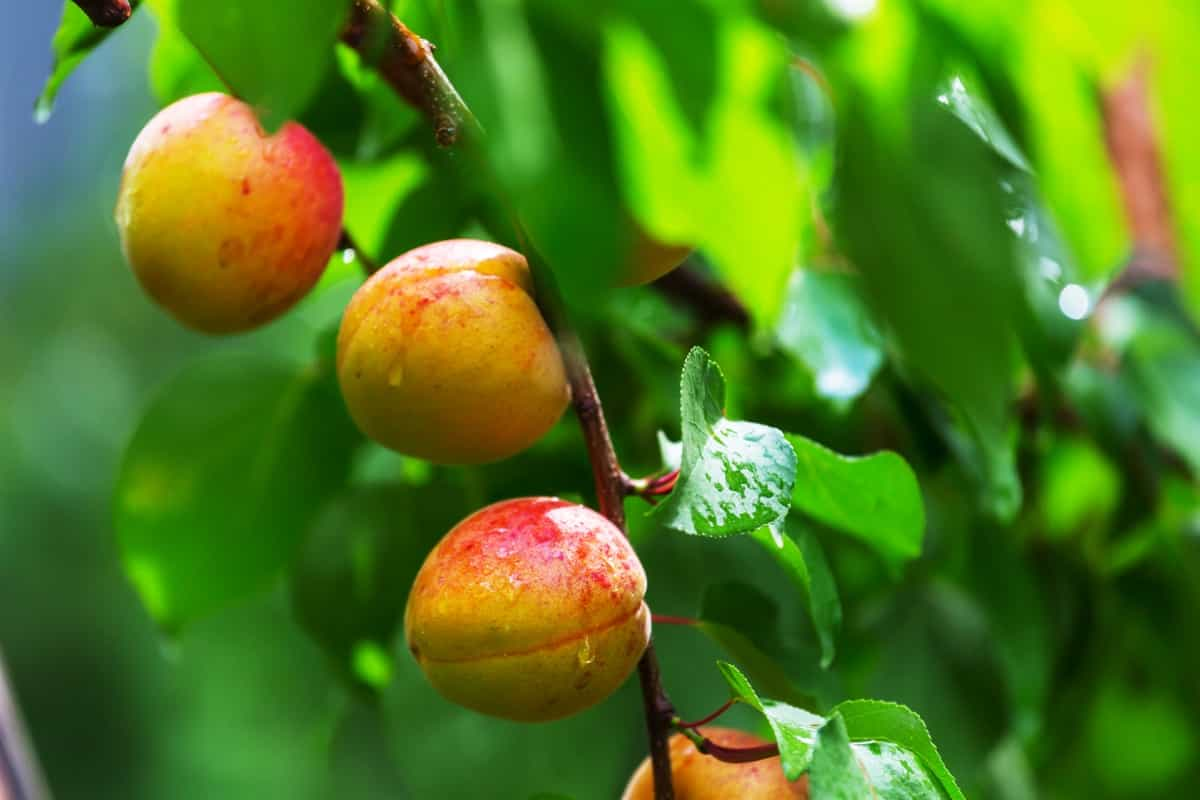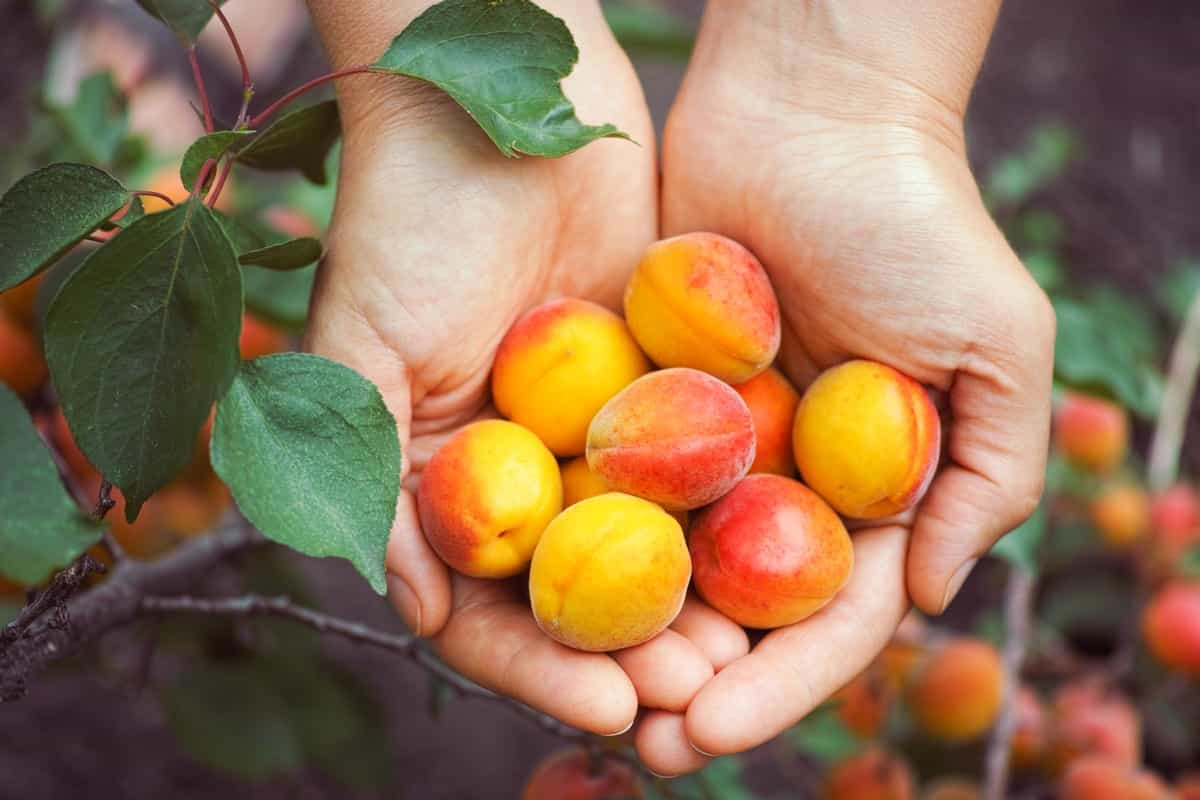Apricot farming is an exceptional agricultural endeavor that offers promising profitability and substantial revenue, as illustrated by this project report on apricot farming. An essential focus of this report lies in unraveling the economics of apricot production on a 1-acre plot, aiming to provide a meticulous breakdown of various cost components, the potential for profit, and the general return on investment (ROI) in apricot farming.

In the spirit of encouraging sustainable and profitable practices, this report emphasizes approaches to cost reduction in apricot farming. Consequently, aspiring and established farmers can leverage these insights to comprehend the 1-acre apricot farming cost, potential profit, and the overall yield likely to be realized from a 1-acre apricot farming project.
Apricot Farming Project Report
Factors Affecting Apricot Farming Costs and Profits
A multitude of factors influences the costs and profitability of apricot farming. Key considerations include the geographical location, climate, soil quality, and prevailing market conditions, which directly impact the 1-acre apricot farming profit and yield.
Different locations present variations in land, water, and labor costs, inevitably influencing the total expenditure and return on investment (ROI) in apricot farming. Also, the choice of apricot varieties and the adoption of effective farming practices play pivotal roles in determining the overall production economics and revenue in apricot farming.
Land Preparation and Infrastructure Costs in 1-acre Apricot Farming Project
Land preparation marks the inception of the apricot farming project and involves a financial outlay of $2,000 – $3,000. This cost is attributed to clearing the area, removing debris or weeds, and preparing the land for planting. Variations in this cost arise due to differences in location and soil quality. Ensuring that the land is in optimal condition is quintessential, as it lays the foundation for the forthcoming stages of the apricot farming process, ultimately influencing the 1-acre apricot yield and overall project success.
Planting and Cultivation Expenses for 1-acre Apricot Farming Project
The subsequent phase involves acquiring and planting apricot seedlings, commanding an expense ranging from $1,500 to $2,500. Investing in high-quality apricot seedlings and ensuring their planting in well-prepared soil are instrumental actions that underscore this phase. Essential, too, is the provision of proper irrigation to facilitate healthy growth, laying down the bedrock for a prosperous yield, thereby enhancing the economics of apricot production and profitability in apricot farming.
In case you missed it: Apricot Tree Fertilizer Requirements: Recommendation, How and When to Apply

Irrigation and Water Management Costs in 1-acre Apricot Farming Project
Irrigation and water management are central to the success of the 1-acre apricot farming project, necessitating an expenditure between $1,200 – $2,000. An efficient irrigation system’s installation and maintenance are paramount to ensuring a consistent water supply, which is vital for the apricot trees’ health and productivity. This cost is variable, influenced by the type and quantity of irrigation systems utilized, and is a critical factor in the overall cost reduction in apricot farming.
Fertilizer and Pesticides for 1-acre Apricot Farming Project
Ensuring the apricot trees’ health and productivity requires investing in fertilizers and pesticides, amounting to $800 – $1,200. Applying appropriate types and quantities of fertilizers and pesticides is essential to bolster the trees against diseases and pests, supporting their growth and enhancing the 1-acre apricot farming yield and profit. While vital, this allocation also offers avenues for strategic cost management and reduction, optimizing the return on investment (ROI) in apricot farming.
Labor and Machinery Costs for 1-acre Apricot Farming Operations
Labor and machinery are fundamental in steering the apricot farming project toward fruition, incurring costs that significantly influence the project’s economic landscape. Labor costs, oscillating between $2,000 and $3,000, cover activities such as pruning, harvesting, and overall maintenance of the apricot trees, varying based on location and prevailing labor charges.
Machinery and equipment expenses, ranging from $1,000 to $2,000, entail acquiring essential tools and machines like tractors and tillers. These apparatuses are indispensable in facilitating various farming operations, further enhancing the prospects of attaining an optimal 1-acre yield and robust profitability in apricot farming.
Harvesting and Post-Harvest Handling Expenses for 1-acre Apricot Farming
Harvesting and post-harvest handling are pivotal stages that require meticulous execution and financial allocation. Engaging in prudent practices during these phases is crucial in safeguarding the quality of the apricots, ensuring they reach the market in prime condition. The expenses in this category are multifaceted, embracing labor, packaging, and storage costs, among others. Such costs are instrumental in determining the overall revenue in apricot farming, acting as key drivers in realizing appreciable returns and sustained profitability in the apricot farming venture.
In case you missed it: How to Train and Prune Apricot Trees: A Comprehensive Guide

Marketing and Distribution Costs in the 1-acre Apricot Farming
In marketing and distribution, several costs are instrumental in bridging the gap between apricot production and the ultimate consumers. These costs, integral to the 1-acre apricot farming project, include transportation, packaging, and market fees. Strategic marketing practices and an efficient distribution network are vital in enhancing market reach and optimizing sales, bolstering the overall revenue and profit margins in apricot farming.
A well-calibrated approach in this domain is essential in ensuring that the apricots are favorably positioned in the market, facilitating competitive pricing and robust revenue streams and contributing to a gratifying return on investment (ROI) in apricot farming.
Assumption of this Apricot Farming Project:
This project report assumes that the farmer already owns a piece of land suitable for apricot farming. The detailed cost and profit analysis is based on a 1-acre apricot farming operation. Notably, the profit calculations presented are primarily for the first harvest, with a projection of potentially increased profits from subsequent harvests.
Additionally, it’s imperative to acknowledge that the actual profits and costs in apricot farming are subject to variation influenced by many factors, such as the specific region, apricot variety, time of the year, precise cultivation practices employed, and prevailing market values and demands.
Cost and Profit Analysis of 1-Acre Apricot Farming
| Category | Estimated Cost | Description |
| Land Preparation | $2,000 – $3,000 | Includes preparing the land, clearing debris |
| Seedlings and Planting | $1,500 – $2,500 | Purchasing and planting of apricot seedlings |
| Irrigation | $1,200 – $2,000 | Installing and maintaining an irrigation system |
| Fertilizers and Pesticides | $800 – $1,200 | Applying fertilizers and pesticides |
| Labor | $2,000 – $3,000 | Hiring labor for various farming tasks |
| Equipment | $1,000 – $2,000 | Purchasing necessary farming equipment |
| Total Costs | $7,000 – $12,000 | |
| Estimated Profits | Revenue Details | Description |
| Apricot Production | 200 – 300 kg/acre | Estimated yield |
| $3 – $5 per kg | Estimated price per kilogram | |
| Total Estimated Revenue | $600 – $1,500 | Based on yield and price per kg |
| Subsidies and Grants | Varies | Based on location and government policies |
| Total Estimated Profits | $600 – $1,500 |
Note: The above profit is calculated by including the subsidies and grants. Most of the time, farmers opt for subsidies which help them recover total costs.
Frequently Asked Questions (FAQ) on Apricot Farming
What is the Profit of Apricot Farming?
The profit from apricot farming varies based on multiple factors such as location, cultivation practices, and market demand. On a 1-acre farm, the estimated profit ranges between $600 to $1,500 after considering all costs, including land preparation, irrigation, and labor costs.
In case you missed it: How to Propagate and Pollinate Apricot Trees: Seed Germination, Grafting, Transplanting, and Care

Which Country is Famous for Apricots?
Turkey is renowned globally as a leading producer of apricots. The country’s conducive climate and fertile lands create an ideal environment for cultivating high-quality apricots, contributing significantly to the global market.
What is the Benefits of Apricot?
Apricots are highly nutritious fruits, rich in vitamins, antioxidants, and dietary fiber, contributing to overall health and wellness. Consuming apricots can aid in improving digestion and skin health and may also protect against various chronic conditions.
Conclusion
Investing in a 1-acre apricot farming project presents a viable avenue for generating appreciable profits, influenced by strategic planning in aspects like land preparation, cultivation, and marketing. Success in this venture requires a nuanced understanding of the variables that impact costs, production economics, and overall profitability, ensuring a robust and sustainable operation.
- Feed Your Flock for Less: Top 10 Tips to Save on Chicken Feed
- Ultimate Guide to Ossabaw Island Hog: Breeding, Raising, Diet, and Care
- Hatching Answers: The Top 10 Reasons Your Chickens Aren’t Laying Eggs
- Eggs and Economics: Breaking Down the Cost of Raising Backyard Chickens
- Defend Your Greens: Proven Methods to Keep Iguanas Out of Your Garden
- Ultimate Guide to Cinnamon Queen Chicken: A Comprehensive Guide for Beginners
- Ultimate Guide to California Tan Chicken: Breeding, Raising, Diet, Egg-Production and Care
- Ultimate Guide to Marsh Daisy Chicken: Breeding, Raising, Diet, and Care
- 10 Types of Chicken Farming Businesses You Can Start for Profits